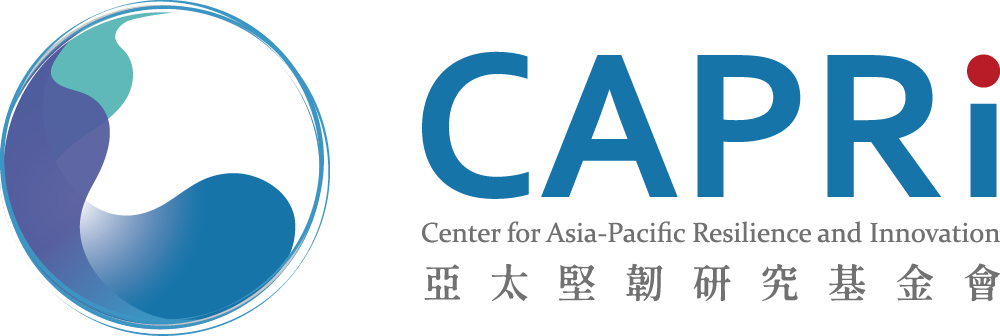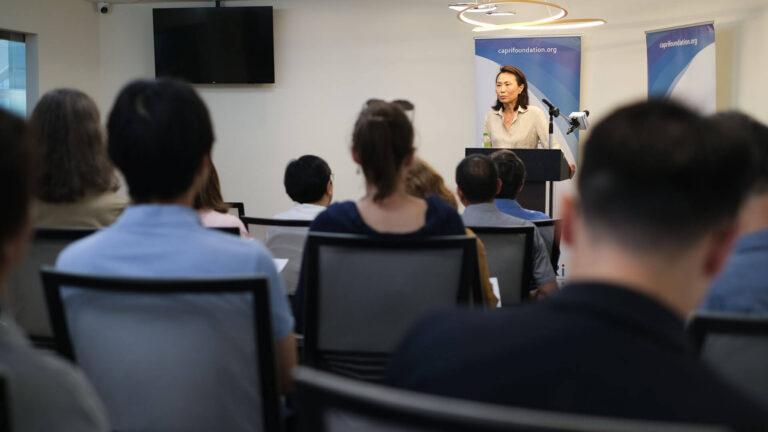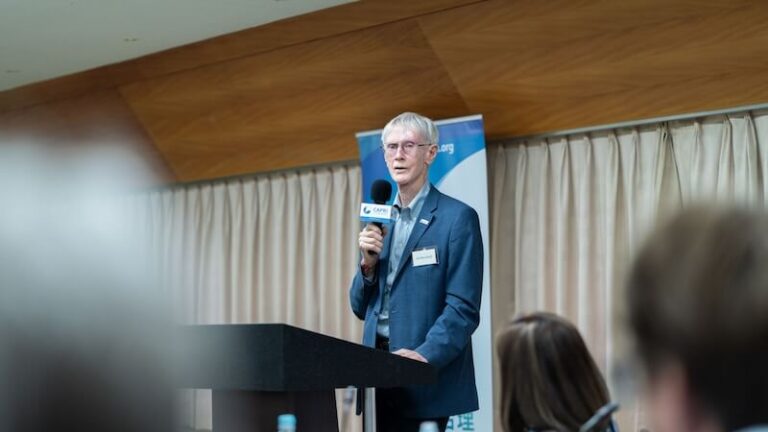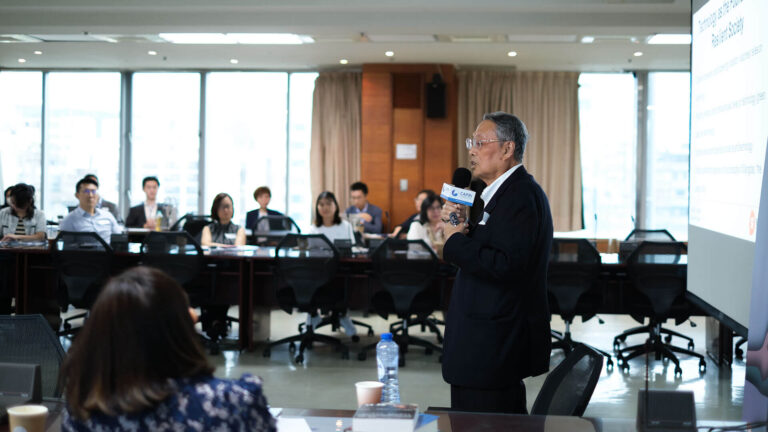During the COVID-19 pandemic, the world has been forced to reconsider its healthcare practices as the strain revealed deficiencies in healthcare systems attempting to ensure accessibility and quality. However, the pandemic also enabled digital technology to emerge as a means of overcoming many challenges healthcare systems face.
On day one of the Partnership for Health System Sustainability and Resilience (PHSSR) 2022 Global Summit, Syaru Shirley Lin of CAPRI facilitated a panel on “Future-proofing healthcare systems through data and digitalization.” The discussion included leading experts Prof. Lieven Annemans, (Professor of Health Economics at Ghent University), H. E. Dr. Bandar Abdulmohsen Al Knawy (Ministry of National Guard Health Affairs of Saudi Arabia), Dr. Tina Manoharan (Vice President at Philips, Global Lead of the Data Science & AI Center of Excellence, and Head of Digital Innovation), Dr. David Rhew (Global Chief Medical Officer and Vice President of Healthcare at Microsoft), and Professor Feng-jen Jean Tsai (Professor at Taipei Medical University).
During the session, each panelist explored avenues to enhance the resilience of healthcare systems worldwide by using data and technology. While health systems are multifaceted, new technological applications in health such as telemedicine and artificial intelligence (AI) have the potential to increase efficiency and save lives. Therefore, effective data analysis and its integration into healthcare services can transform patient experiences and quality of care while delivering more equitable treatment across socioeconomic boundaries.
Professor Lieven Annemans explored the potential of telemedicine and this team’s findings from Belgium. His research found that telemedicine, in a hybrid application that combines face-to-face visits with remote follow-ups, results in high patient satisfaction, is cost effective, and enables a tailored approach to patient care. This hybrid approach overcomes the disadvantages of telemedicine, namely its negative negative impact on the quality of care, diagnosis, and doctor-patient relationships as well as problems of overuse due to financial incentives for providers.
Speaking from the public sector, H. E. Dr. Bandar Abdulmohsen Al Knawy described the success of digital healthcare in Saudi Arabia. Dr. Al Knawy explained how digital healthcare delivery projects during the pandemic have improved healthcare accessibility and capacity, exemplified by Saudi Arabia hosting one of the largest virtual hospitals in the world. Machine learning and AI were also immensely beneficial in ensuring the efficient allocation of resources for intensive care units and identifying gaps in the healthcare system. Success was also seen in Taiwan’s COVID measures; Professor Feng-Jen Jean Tsai noted how technology and effective data analysis helped with early detection and contact tracing, and communication technology provided clarity to the public on where to purchase essential goods such as masks.
Sharing a private-sector perspective, Dr. Tina Manoharan highlighted that in the face of multiple challenges to healthcare systems, such as staff shortages, the foremost goal in applying information technology is to help healthcare professionals make better and more timely decisions and to integrate insights provided by data into their workflow. Solutions that achieve this can ease workloads and improve efficiency, thus building a more resilient healthcare system. Dr. David Rhew shared a similar sentiment, pointing out that data enables us to identify and quantify gaps in care and health outcomes so that clinicians, policymakers, and community leaders understand how to best intervene. Complete and comprehensive data collection reveals that healthcare provision is a complex endeavor with many social factors.
To build more resilient healthcare systems, the development of technology such as AI and machine learning is the way forward. These technologies can ensure that the challenges experienced during the pandemic can be overcome to better equip the world for future shocks. Although digitization can improve quality of life, we must ensure that it accompanies, not leads, our lives. While data and machine learning can provide immense benefits, they must be managed and integrated into systems that are human. Technological integration at appropriate points in our workflow can enhance existing infrastructure and systems rather than dictating them. The interaction of socioeconomic and environmental factors in determining health outcomes, as revealed by advancements in digital technologies and data, demonstrates that healthcare is not an isolated discipline within the confines of clinical settings but is deeply interconnected to our economic, social, and ecological systems.
Read the PHSSR 2022 Global Summit Recap “Turning Commitments Into Real Action”
Read the PHSSR 2022 Global Summit Press Release “Governments urged to invest in healthcare systems despite global economic uncertainty”




